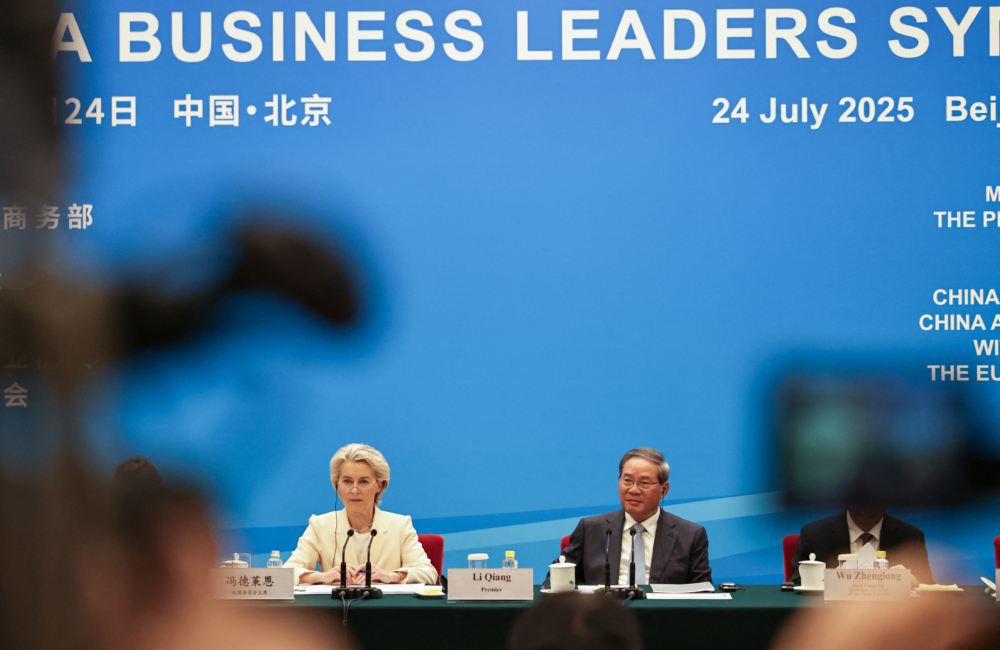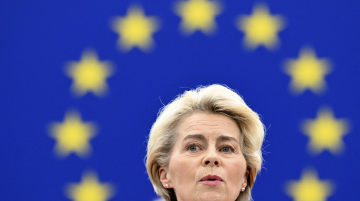
The prevailing view among Chinese intellectuals is that U.S.-China strategic rivalry is structural and enduring.
Yan Yilong, for instance, describes the competition as “not merely a disagreement between two sovereign states” but a “structural conflict between the great rejuvenation of the Chinese nation and American hegemony.”
For scholars like Yan, a professor at Tsinghua University, the contest between China and the United States is inevitable and epoch-defining.
But what if it wasn’t?
Ever since Donald Trump assumed office earlier this year, the possibility of a grand bargain between the U.S. and China has been on the cards. Trump’s approach to foreign policy is transactional and highly personal, while his apathy for liberal democratic values drains the U.S.-China rivalry of any moral, ideological weight.
After making major concessions in the trade war he declared on “liberation day,” Trump has softened his tone – rolling back export restrictions on Nvidia chips and actively courting a meeting with Xi Jinping. This week, Trump also reportedly blocked Taiwan’s President Lai Ching-te from stopping over in New York. One Chinese scholar, Wei Liejie, even argues that Trump offers a “once-in-a-century opportunity” to strike a bargain with Washington over Taiwan.
This potential thaw in U.S.-China tensions is already prompting unease in Europe. For the European Union, a U.S.-China détente could be a disaster, leaving Brussels out in the cold and flanked by increasingly antagonistic superpowers. Brussels has just agreed to a trade truce with the United States that could have been worse but still required major concessions.
While the EU might hope a calmer U.S.-China relationship would stabilize global trade, it also risks rendering Europe strategically irrelevant: neither indispensable to Washington nor able to sway Beijing.
Last week, European Commission President Ursula von der Leyen left the EU-China summit with no sign that Beijing would move an inch on either of the EU’s two chief complaints: China’s support for Russia’s war in Ukraine and an increasingly imbalanced trade relationship with Europe.
While the Chinese readout of the summit — which marked 50 years of EU-China relations — predictably omitted any mention of tensions, stating that “there are no fundamental conflicts or geopolitical contradictions between China and the EU,” von der Leyen solemnly declared that relations had reached an “inflection point.”
Whether Brussels can corral European member states into following through on this steely rhetoric is another matter. But if it does, the EU-China relationship could deteriorate just as Trump warms to Beijing, further isolating Europe on the world stage.
A U.S.–China détente may also prove a mixed bag for countries in the Global South. On the one hand, low and middle-income nations in Africa, Asia, and Latin America have long complained of being forced to choose sides in a rivalry not of their making. A grand bargain could bring steadier supply chains, a more predictable geopolitical climate, and perhaps – though this may be a stretch – even greater cooperation on issues like climate and debt relief.
On the other hand, those that benefited from playing both sides would see their leverage eroded. If Beijing and Washington go so far as to divide the world into respective spheres of influence, mid-sized powers may even find their sovereignty increasingly subject to the whims of their respective regional hegemons.
For now, a grand bargain between Washington and Beijing remains speculative. But even the hint of one forces a reckoning – not only for Europe, which risks strategic marginalization, but also for countries in the Global South, many of which have been able to carve out leverage in a multipolar but contested world.
Jacob Mardell is CGSP’s Non-Resident Fellow for Global Realignment.








